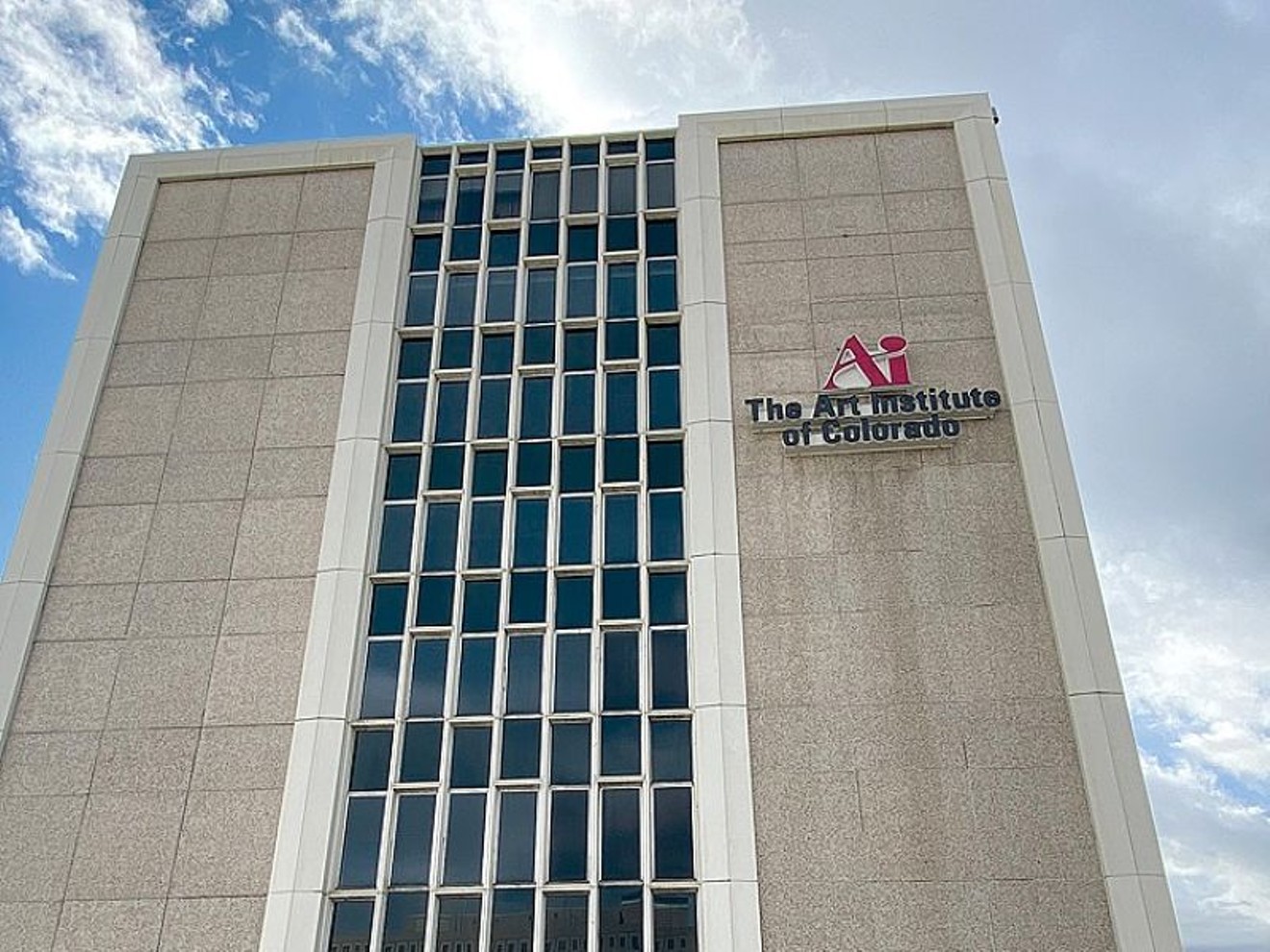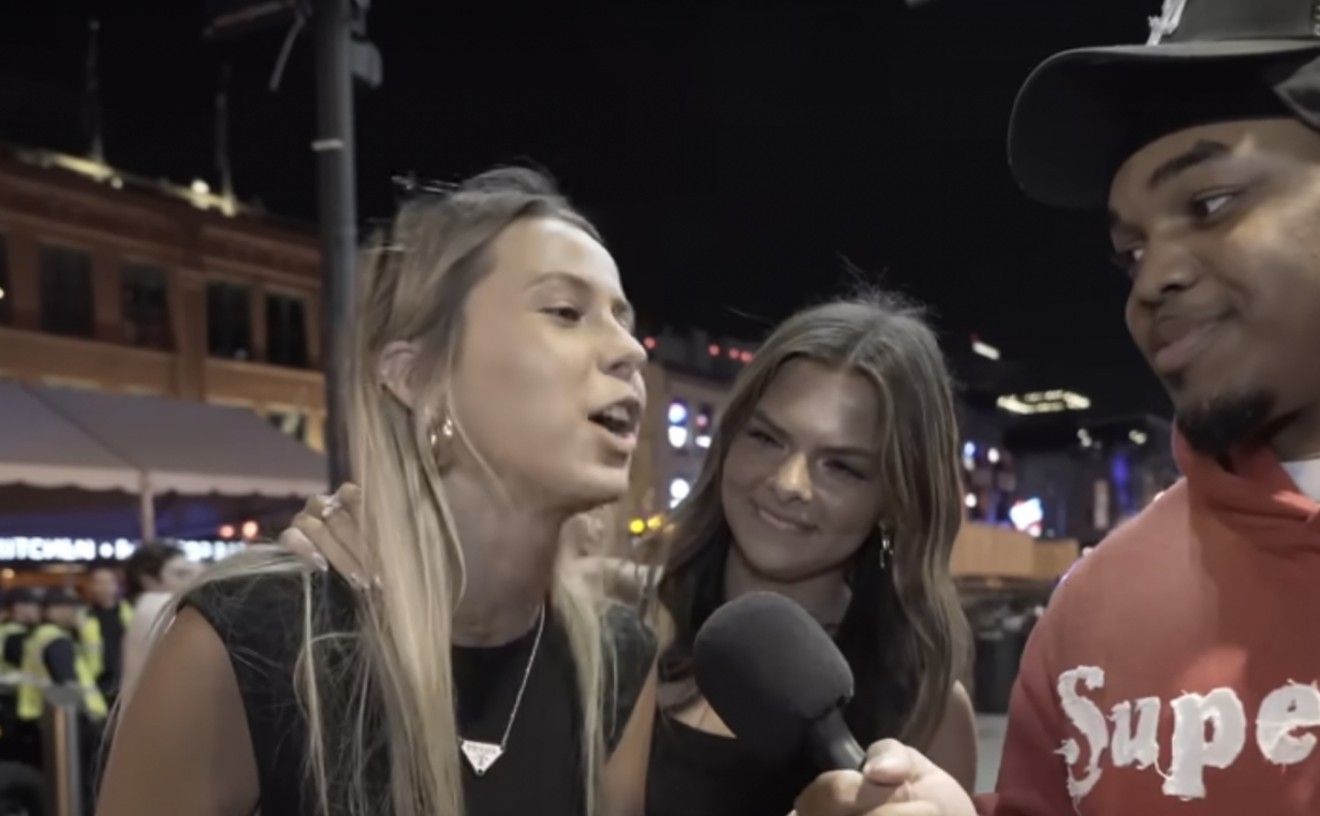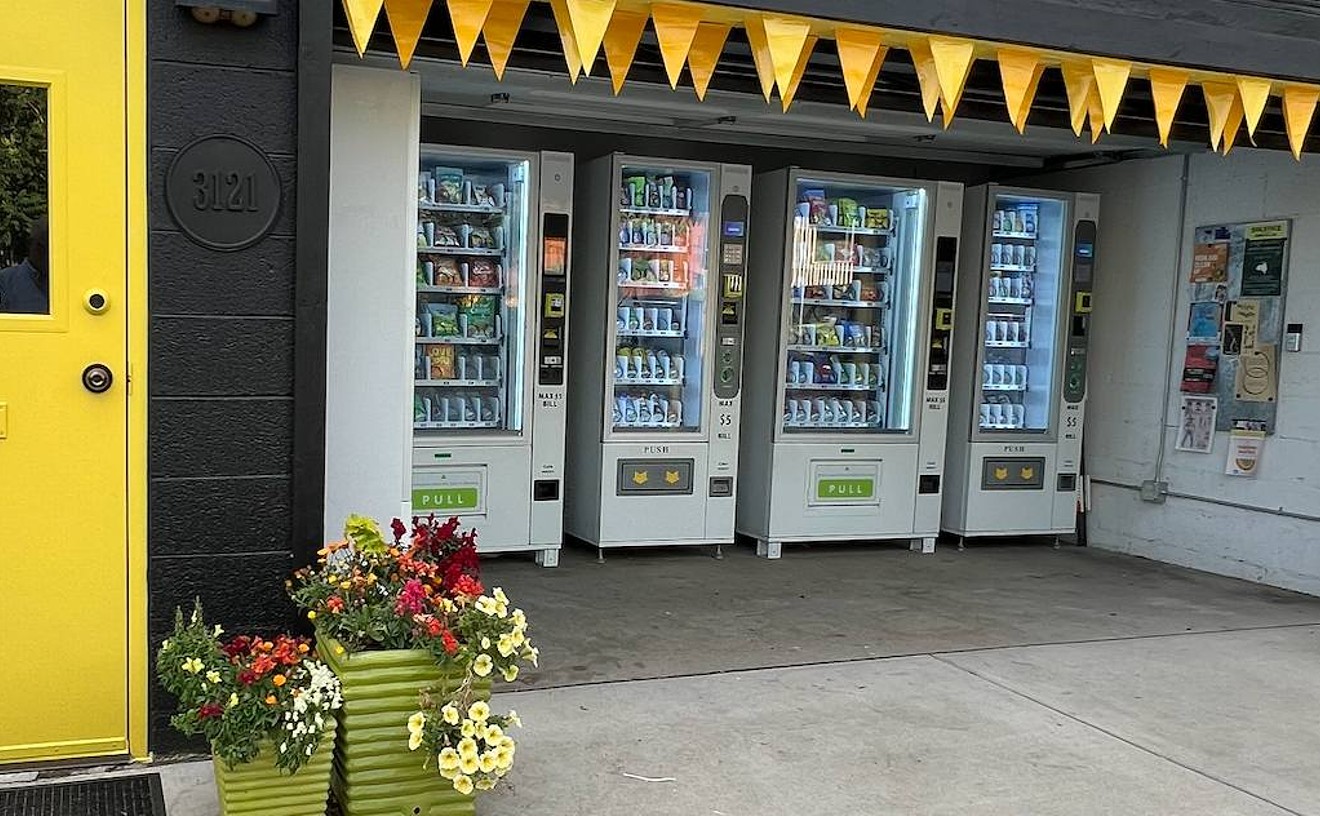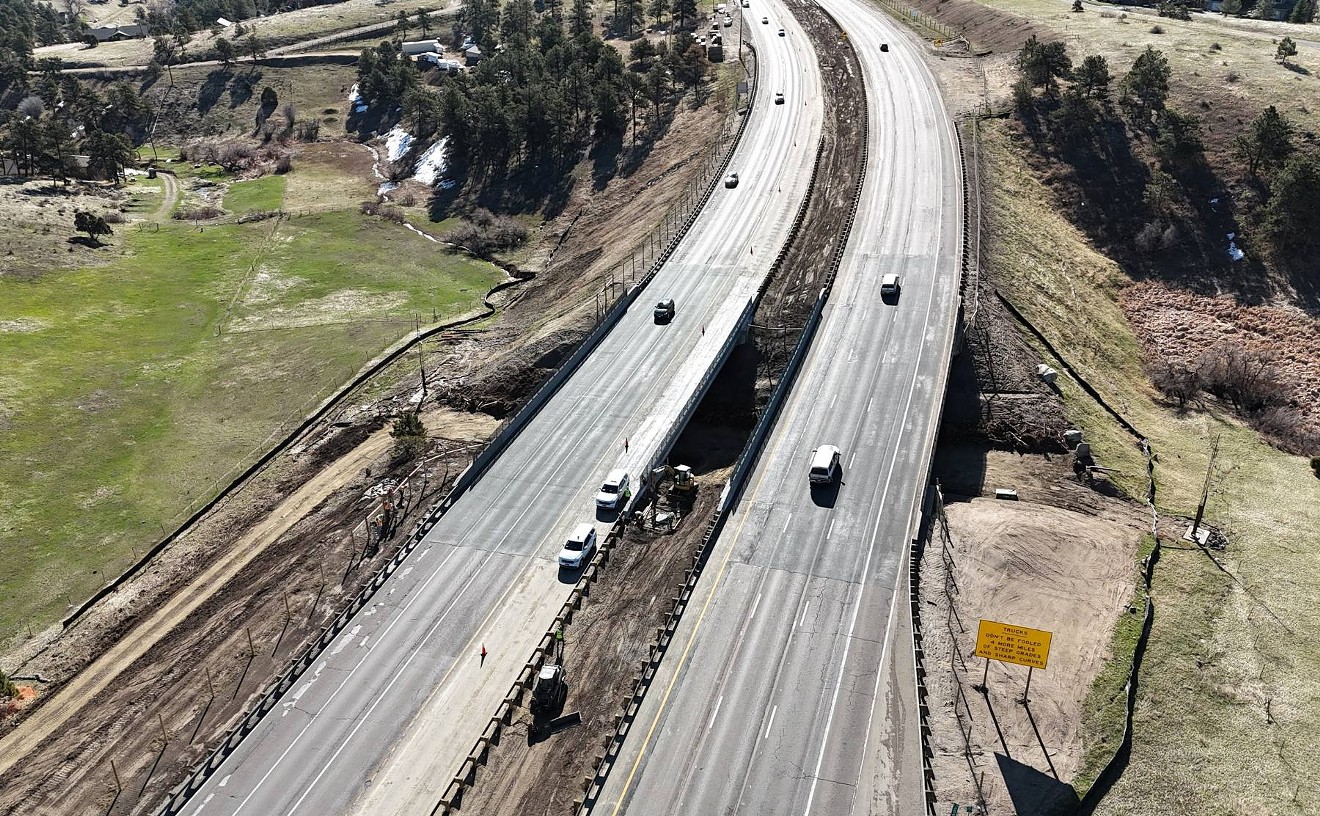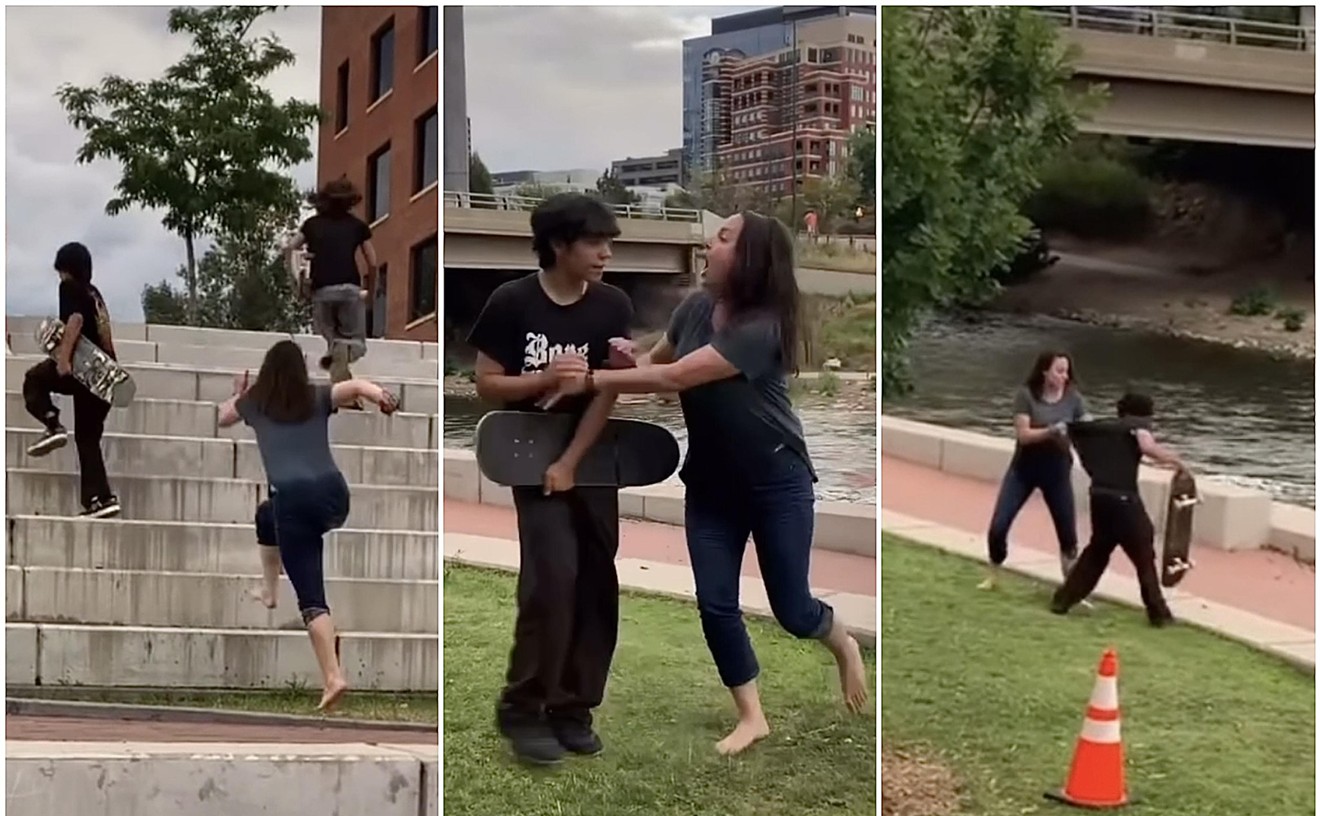Last February, about 1,500 former Art Institute students celebrated when the Department of Education announced that it would forgive the student loans issued in 2018 to students who’d attended the school’s Colorado and Illinois locations that year — only to later discover that the educational institutions were unaccredited. Both closed in December 2018.
The Department of Education’s decision stemmed from a lawsuit filed against the department in October 2019, and it was a big win for the students who’d taken out those loans. But any student who’d paid tuition some other way was stuck, with no promise of a refund.
Elizabeth Ramos Torres, a Denver resident who studied audio production at AI, says that her mistake was paying cash for the first semester of tuition in 2018 rather than taking out another loan. “All of a sudden, the lawsuit’s over, everyone’s already gotten their student loans forgiven, except for people like me, who were left with no degree, no accredited transcripts,” says Torres. “I got zero representation.”
The Art Institute of Colorado was established in 1952 as the Colorado Institute of Art; in 1975, it was purchased by Pittsburgh-based Education Management Corporation (EDMC), creator of the well-known Art Institutes brand. Over the next few decades, the school became an active player in the Denver community, employing hundreds of faculty members and hosting visitors from established creatives to Colorado governors. The school issued degrees in fashion, photography, interior design, culinary arts and other fields, and those degrees often got students prestigious jobs.
But things started going downhill — quickly — in the 2010s, when EDMC was accused of illegally offering financial incentives to recruiters. By late 2015, EDMC had paid $100 million in legal settlements and enrollment was falling. In 2017, 611 students attended the Art Institute of Colorado, according to DataUSA, a government data platform, paying an average of $17,532 in tuition.
That wasn’t enough to keep it going. Late in 2017, the Dream Center Foundation, a religious, social welfare nonprofit based in California, agreed to buy EDMC and all of its schools — multiple Art Institutes, South University and Argosy University — through its subsidiary, Dream Center Education Holdings.
Before the deal was finalized, EDMC requested approval from the Higher Learning Commission, a regional agency responsible for accrediting some EDMC schools, including those in Colorado and Illinois. The HLC board approved the sale but temporarily withdrew the accredited status of the two Art Institutes, changing their status from “Accredited” to “Change of Control-Candidacy.” Under this status, a school must spend a designated period of time providing “emerging evidence” that it meets accreditation criteria before it is again accredited, according to the HLC website.
The Art Institute of Colorado’s new status took effect on January 20, 2018, when the sale to the Dream Center Foundation was finalized.
“Students taking classes or graduating during the candidacy period should know that while the institution remains in candidacy status, their courses or degrees are not accredited by HLC,” the HLC reported on a 2018 public disclosure notice. “It is possible that they will not be accepted in transfer to other colleges and universities or recognized by prospective employers.”
The HLC instructed the Dream Center to inform students of the school’s change in status, but it failed to do so. Instead, the Art Institute continued to collect tuition from students, both through cash and loan payments. And it didn’t hold a campus meeting to discuss the ownership switch until that July, when the issue of the accreditation hold finally came up.
“They brought us all together and said it’s hard running a school, and a bunch of big words to make you be reassured that there’s a guy in a suit talking to you,” recalls Joshua Curran, another student who was pursuing a degree in audio production. “They said, ‘No, we did not lie to you. You guys should just finish out, we’re going to get our accreditation back.’”
But instead, that December, all eighteen Art Institute locations, including the Art Institute of Colorado, closed their doors for good.
Nine months later, the National Student Legal Defense Network filed a lawsuit against then-U.S. Education Secretary Betsy DeVos and the Department of Education, which had continued to issue federal loans to AI students even after the department was told the schools had lost accreditation. The department’s defense was complicated: While it cannot issue federal loans for unaccredited for-profit schools, it can do so for nonprofit schools. The department had designated the AI schools as nonprofits in May 2018, but backdated the decision to January.
The lawsuit claimed that DeVos’s department had made this move solely to cover up its unlawful distribution of loans. “The Department told the schools that in order ‘to avoid the lapse of eligibility...the Department is granting the institution temporary interim non-profit status,’” the lawsuit reads. “The Department did not disclose any grounds for its abrupt conversion of these for-profit schools to non-profit schools.”
In February 2020, the Department of Education announced that it would voluntarily forgive the student debts of about 1,500 individuals who had taken out loans to attend the Art Institute of Colorado and the Illinois Institute of Art during the eleven months the schools were open but unaccredited in 2018; the court case was closed on June 3.
But the case wasn’t closed for students like Curran and Torres. For several semesters, Torres had taken out loans to attend AI. But in January 2018, she started paying the school in cash. Curran was also paying his tuition with cash, borrowing money from relatives. As a result, neither was included as a plaintiff in the NSLDN’s lawsuit. Only students who took out loans after December 2017 were covered by that settlement.
The tuition money wasn’t their only loss, they say. The credits students earned in 2018 were not worth as much as they would have been if they had resulted in an accredited degree. Curran, who is now working at a local radio station, says colleagues who studied in other areas — from fashion to photography — have told him they’ve been denied job opportunities because their degrees are from the Art Institute of Colorado. So when he applied for jobs, he says, he did not indicate where he obtained his bachelor’s degree.
“At the end of the day, there were so many kids. They either get denied a job or they were promised a whole bunch of technical expertise that they never learned at the school,” Curran says. “Me and my fellow students are wondering if we’re going to be able to eat this week. It has made the doors that could have been opened kind of shut.”
Torres says she’s also had trouble getting paying jobs in audio production. Part of the problem is that she didn’t get a degree: After she finally learned that AI had lost accreditation, she withdrew from the school and attempted to transfer her credits elsewhere. But other schools would only accept a fraction of her credits, she says, pushing the possibility of finishing her degree out of reach financially.
Curran says that he, too, learned he could not transfer the majority of his credits. He ultimately finished his degree at AI.
While they watched former colleagues have their student loans forgiven, Curran and Torres have been fighting on their own. “I’ve talked to other students, and they said it was just through time and perseverance of them just bugging somebody that they finally got something,” Curran says.
He’s reached out to the Colorado Attorney General’s Office and the federal Department of Commerce for help, while Torres has applied for a Borrower Defense to Repayment for the loans she’d taken out before 2018. The Borrower Defense, which is run by the Department of Education, forgives loans for students who borrowed money to attend a school that was misleading them or breaking state law. But Torres hasn’t received a decision on the application she filed back in January 2019, and her loans have since accrued thousands of dollars in interest. As a result, she says, her poor credit score makes it impossible to buy a home.
“They just keep saying, ‘We’ll let you know.’ This is so depressing,” says Torres, who now works as a teacher using a master’s degree she’d earned before she attended AI. “I try not to regret things in life, but I do regret going to the Art Institute of Colorado.”
A spokesperson for Colorado Attorney General Phil Weiser says his office cannot discuss any work regarding the Art Institute because of privacy issues. “Any students who have questions about the Art Institute settlement or other student loan matters can always contact our student loan ombudsperson at coag.gov,” the spokesperson suggests.
Although the Dream Center subsidiary that had purchased the Art Institute of Colorado went into receivership in 2019, Curran and Torres aren’t giving up. And if they can somehow recover their wasted tuition money, they’ll use it to pursue audio production degrees at accredited schools.
“I think that if enough of us students who paid out of pocket come together, there’s a small chance that we could find some lawyer that would be able to get us some sort of restitution,” Curran concludes. “It’s just a financial heartache. It’s my dad’s life savings and my grandma’s life savings. I would like for them to feel like they didn’t waste their time and energy helping me out.”
[
{
"name": "Air - MediumRectangle - Inline Content - Mobile Display Size",
"component": "12017618",
"insertPoint": "2",
"requiredCountToDisplay": "2"
},{
"name": "Editor Picks",
"component": "17242653",
"insertPoint": "4",
"requiredCountToDisplay": "1"
},{
"name": "Inline Links",
"component": "18838239",
"insertPoint": "8th",
"startingPoint": 8,
"requiredCountToDisplay": "7",
"maxInsertions": 25
},{
"name": "Air - MediumRectangle - Combo - Inline Content",
"component": "17261320",
"insertPoint": "8th",
"startingPoint": 8,
"requiredCountToDisplay": "7",
"maxInsertions": 25
},{
"name": "Inline Links",
"component": "18838239",
"insertPoint": "8th",
"startingPoint": 12,
"requiredCountToDisplay": "11",
"maxInsertions": 25
},{
"name": "Air - Leaderboard Tower - Combo - Inline Content",
"component": "17261321",
"insertPoint": "8th",
"startingPoint": 12,
"requiredCountToDisplay": "11",
"maxInsertions": 25
}
]

